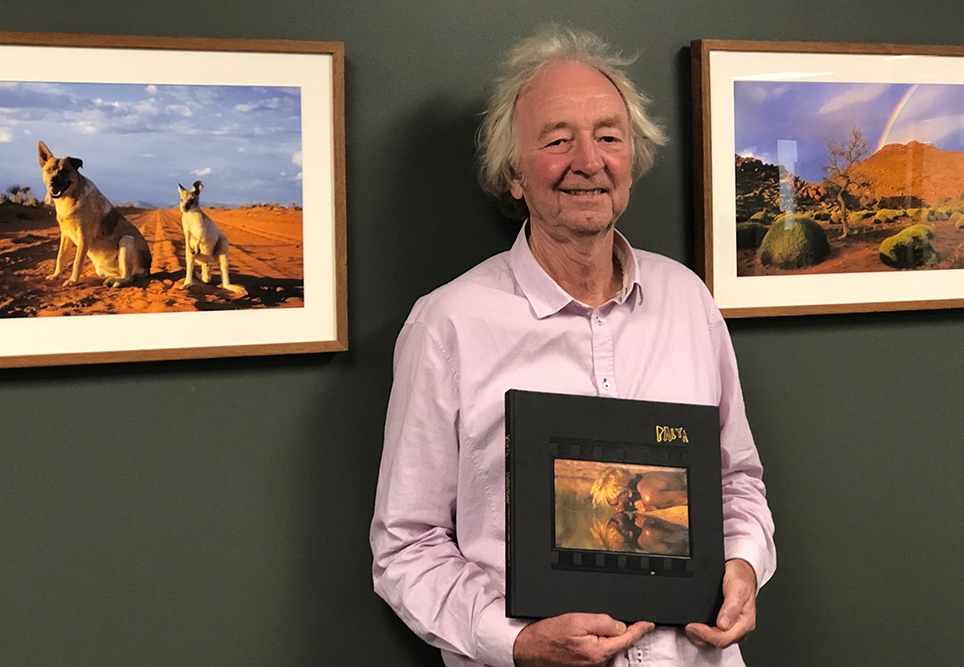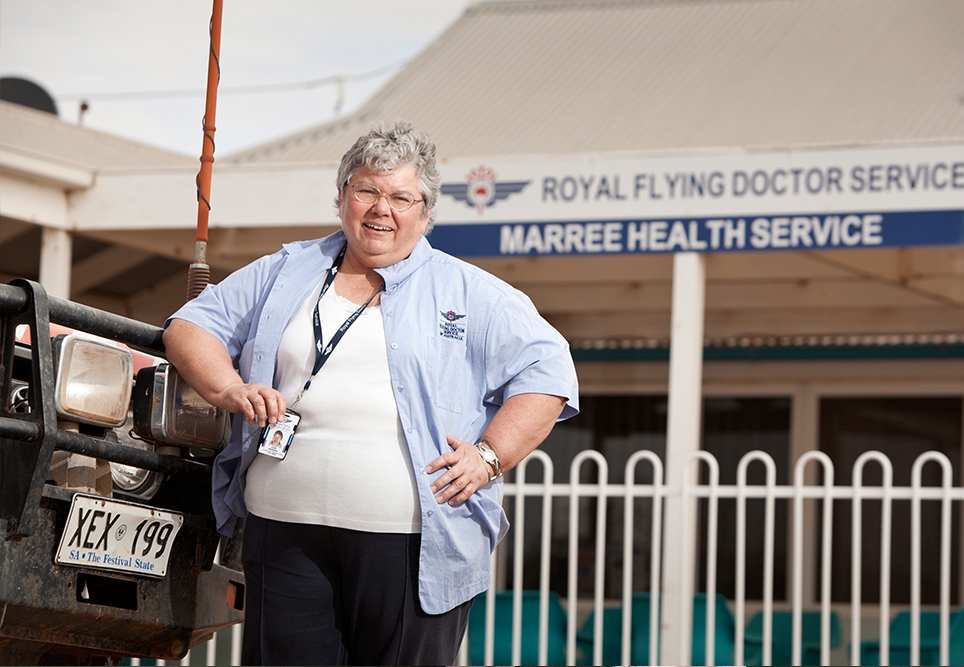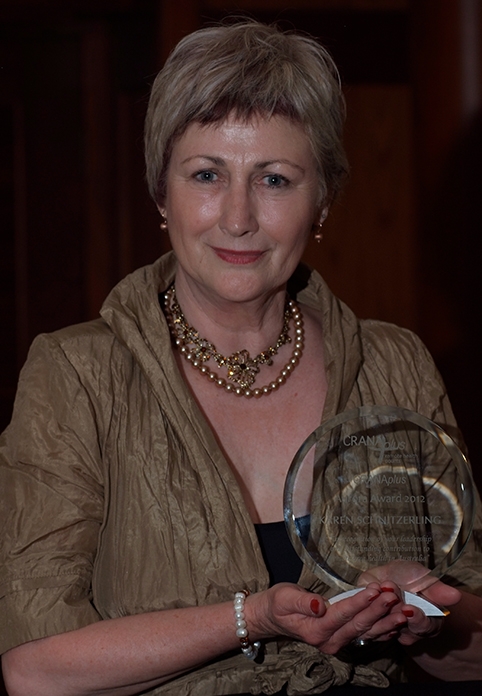This site may not work properly using older versions of Edge and Internet Explorer. You should upgrade your browser to the latest Chrome, Firefox, Edge, Safari, or any other modern browser of your choice. Click here for more information.
Your Stories
This is where we tell your stories, cover topical issues and promote meaningful initiatives.
A CRANAplus Members' guide on retiring from remote area nursing
Retired rural and remote area nurses Stewart, Karen, June and Tracy share their retirement journeys and discuss transitioning out of the workforce, preparing your finances and home, pursuing your interests, and dealing with change.
Stewart’s realisation that he was approaching traditional retirement age planted the seed of retirement in his mind.
“I was still enjoying the job [in the APY Lands],” he says, “but I thought that no matter what anyone says, there are other things in life apart from working.”
Karen’s decision to retire was fast-tracked when her husband sold his business. She decided it was time, also factoring in the length of time she had worked in the health care industry and the needs of her family.
June moved to Marree in SA’s north early in her career and nursed there for around 40 years.
Just recently, she decided it was time to scale things back and she now works casually as a home care assistant.
“I wasn’t sure if I was really ready to retire,” June says. “You don’t always feel as old as you are… I am still as busy as before, as [I am] very involved with community. Probably even harder to get away now!”
For Tracy, whose name has been changed for privacy, the decision to retire was heartbreaking.
“Put off retiring until you really need or want to,” she says. “Age is no barrier to doing various tasks safely and we have skills that remain valuable [until later in life].”
Preparing to leave work
When the time does come to retire, it’s important to work closely with your employer to ensure an effective handover, Karen says.
“I notified my boss in December – that was giving six months’ notice,” she says.
Planning for the continuity and best outcome for the health service is very important. I’ve stepped into jobs where someone has left suddenly and there’s been no handover… Going in, and having to work out how the service functions with really no knowledge, is a hard task.”
A quality handover can also be a feel-good experience, Stewart says. He is taking a gradual approach to retirement and is still working for brief periods in the APY Lands.
“I believe there’s a point in any job where it would be worthwhile passing onto someone younger, so they can get things going and maybe bring in some new ideas,” he says.
“It’s nice to do a good handover – it makes it more satisfying for yourself that you’ve handed over and completed most of the tasks you should’ve done before you retired.
“In retirement, you always have options – whether it is volunteering for an organisation, or working part-time somewhere. At the moment, it’s easy to get a hold of that kind of work – they’re looking for people everywhere.”
June tells CRANAplus Magazine she worked alone in Marree for around 30 years but nowadays there are other staff to hand over to. Because she lives in town, she’s been able to continue passing on knowledge even after her official retirement.
“They still call on me occasionally to ask me questions and occasionally I’ve gone to help, manned the desk when somebody was sick,” she says.
“Not totally stopping work has definitely helped with the change,” she continues, referring to her new role in home care.
“If you really feel you’re not ready, [staying involved in some way] makes you feel like you’re still doing something you spent lots of time training for, and have been doing for years.”
Preparing for life at home
Preparation for retirement ought to begin as soon as you decide you are retiring, interviewees for this article agree.
Tracy advises readers nearing retirement to make their homes more liveable while they’re still working.
“One should plan ahead to retire bearing in mind that income stops, so if not planning to move into a purpose-built retirement home, do everything to the house that needs to be done to make it safe to retire in,” she says.
“For example, peripheral vision deteriorates, so ensure little step-type edges are smoothed out. If you have an under-bench oven, can you safely remove the hot roast at 80 years old? Maybe refurbish the kitchen while there is still an income to replace the cost.
“Consider developing a professional relationship with gardening and cleaning services before you need them so that you are happy to engage them when you can no longer do the tasks.”
Preparing your finances is also key, says Stewart, particularly when it comes to setting up a retirement income stream with your super fund.
Financial readiness is a long-term project that ought to begin 10, 20 or more years before retirement.
“A lot of people wouldn’t have a lot of super at this stage, certainly from my generation,” he says.
“If you can afford it, just keep putting a bit extra into your super – so you’ve got a ready source to get by.
“The most important thing is to get rid of your mortgage. [It would be hard] to contend with a mortgage or rent if you didn’t have an adequate income from super.”
Pursuing hobbies
Karen and her husband used to play golf regularly, but working away it became impractical and so she quit – after promising herself that she’d play again when retired.
“Probably three months out from retirement, I made sure to have a little hit, to get into the swing of it,” she says.
“My husband had already organised for me to be measured and bought new clubs… Now I’m playing two or three times a week.
“We also decided we’re going to get another dog… and to get my garden ready for an open garden.”
However, playing catch-up around the house has put some of Karen’s well-laid recreational plans on pause for the time being.
“When you retire and walk back in [to your house] – not really having lived there for 20 years – you can be in for a surprise,” she says.
“I haven’t emptied the shelves for 20 years. Because I wasn’t here… This must happen to a lot of rural and remote nurses returning home – you can’t get to it until you’ve got time and are back living at home full-time.”
Stewart, a passionate photographer with a published book of photographs called Palya, says his interests have been keeping him busy during his retirement.
“Being reasonably active with a pastime, having an interest… That’s probably the most important thing,” he says.
“I’ve got thousands of slides I’ve got to sort out still… I thought when I did retire I’d volunteer and do some work with the museum. Also, that I’d have more time to catch up with friends, which is always put on the backburner when you’re working.”
The emotional aspect
Stewart has experienced some doubts about whether he has made the right decision, but he expects this is a common experience and has been able to see his doubts as an inevitable part of his retirement journey.
“It’s that nagging doubt whether you are doing the right thing,” he says, “but you can’t go on working forever so at some point of time you are going to have to face the decision.”
Karen says she now has a philosophy that “when you leave work, leave work”, because it’s important not to meddle with the service that you have retired from, and to respect one’s successors.
Although she initially thought she would keep up her registration, she ultimately decided not to because she had already “switched it off in my brain”.
“There are certain events when working as a health professional, that do leave us with some residual stress, and I don’t think we’ll ever get away from that.
“But I try not to dwell on it, but to recognise it’s there and know to seek help if it is not manageable for me.
“I finished my career during the pandemic and do feel a tad guilty about leaving a huge workload to my successors. Now, I’m very happy to engage in the recreational pursuits that I have and to give time to my husband, family, friends and dog.”
June recognises the important role relationships play in health care, which is one of her motivations for staying involved.
“When I first got here hardly anyone went along to the health service,” June recalls.
“They’d only go when they were just about on death’s door. So I would encourage them to go, to be proactive. When they realised I’d be staying for a while, they started getting used to me.
“[When it came time to retire], the community wouldn’t let me leave!” she says, tongue in cheek. “So they found me somewhere to live.
“Gradually, I’ll probably do less and less. But at the moment, I’m getting around okay and doing things, so I’m happy.
“You’ve got to be happy with what you’re doing – whatever you’re doing.”
CRANAplus Members approaching retirement who would like to stay involved may wish to consider being a mentor on the CRANAplus LINKS Mentoring Program. Read Dan’s story to discover what your help could mean to an up-and-coming remote health professional.


